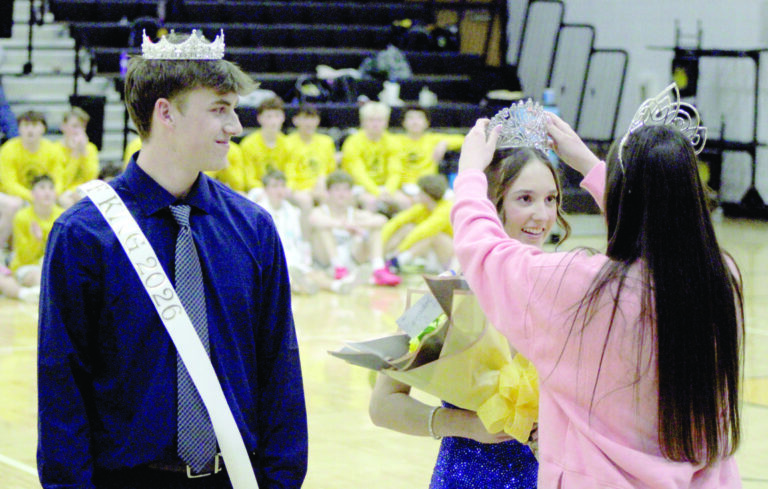Reading innovation drives Purdy success
Program in third year boosting student achievement
BY MURRAY BISHOFF Special to the Cassville Democrat
The Purdy school district has once again proved to be an innovative leader in teaching reading with its special program, after the long-valued AmeriCorps program failed to deliver better scores on Missouri Achievement Program annual standardized tests.
The Reading Success team of Jenny Hickinbotham and Donna Terry are presenting science- based teaching using strategies developed through the University of Florida Literacy Institute.
AmeriCorps reading coaches gave individual attention to students, providing opportunities to read aloud and develop skills with direct supervision. The current program takes a deeper dive into the mechanics of reading.
“Everything we do aligns with the science of reading, from the body of evidence gleaned from neuroscience showing how the brain learns how to read,” Hickinbotham said. “We get all our strategies from that.”
Terry said at the beginning of the year, teachers screen students using three different Lexia Language Essentials for Teachers of Reading and Spelling (LETRS) tests, then glean where each pupil has strengths and weaknesses. Students are then grouped in fours, reflecting similar reading needs and capabilities, all at the same grade level, or, at fourth to sixth grades, combinations of students with similar skills. A team of five aides – three fulltime and two part-time – assist Hickinbotham and Terry in seeing those pupils in 30-minute sessions, seeing 115 children daily.
“Our groups are flexible,” Hickinbotham said. “If we see a different need or they’re not responding, we move them.”
Sessions are generally held mornings. During afternoons, students who need extra help can have more time. During the first year, when Hickinbotham and Terry worked alone, they saw 44 students, in sessions that filled their whole day.
The group meets every Thursday morning to share success stories and brainstorming. They meet with all the teachers quarterly to share progress.
“We had one student who had gone from reading 70 words a minute with 85 percent accuracy up to 169 words a minute at 99 percent accuracy,” Terry said. “We had one student who, at the end of second grade, couldn’t read anything. Now she’s in fourth grade and can read almost any word.
“Our kids don’t feel like it’s a chore to come in here. They want to come. We don’t do anything super fun.”
“We make it fun,” Hickinbotham said.
The key is going back to the phonetic building blocks of reading. They use “decodable” books that build in complexity. In kindergarten, students receive a book with the letters M, A, S and T. Students learn the sounds, see words built from these letters, learn to write the letters as they begin to spell words, then start to read. Other books are introduced with different groups of letters that introduce pupils to less frequently used spelling patterns.
“It’s all very multi-sensory,” Hickinbotham said. “We use manipulatives. We provide lots or opportunities to manipulate sounds and letters.”
While reading difficulty may seem to an outsider like a unique problem only some children experience, Terry said a number of older students have needed the program to relearn some spelling patterns, particularly those who went through the first couple years of COVID.
In addition, Hickinbotham said their strategy includes Dynamic Indicators of Basic Early Literacy Skills (DIBELS), a reading-specific test to track student progress. DIBELS helped cut the number of students needing the extra boost of the reading program from 93 percent to 53 percent last year. With the year-end MAP tests slated to begin in late April, Hickinbotham and Terry are excited to see what success will show this year.
The approach also helps English language learners.
“With those students, we make sure they’re learning the vocabulary as well as the lesson,” Terry said. “Vocabulary is a problem for them. If the students are in our program for their first year, they stay in an ELL group. After that, we mix them with other students, depending on their needs.”
While not wanting to downplay the contribution AmeriCorps and its reading coaches had made to the Purdy Superintendent Travis Graham looked at how Purdy could have better reading results. This is the first full year without AmeriCorps, as the district could not afford to continue along with both the AmeriCorps and Reading Success programs. Donna Terry started the Reading Success program, then Hickinbotham joined her, with more aides added this year. There are hopes to expand the strategy into teaching math.
“I’ve been in education 39 years,” Terry said. “This works. It’s driven. It’s intentional, based on the child’s needs.”





